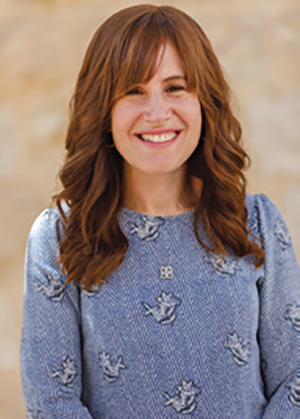
It’s ironic going into Pesach, the holiday of freedom, when we seem to have lost so many of our freedoms. First and foremost, the freedom to feel safe and secure in our health.
Being in quarantine has also taken away so many freedoms:
The freedom to “socially connect” through physical proximity.
The freedom to spend time with people we love, friends and family and to physically be there for them during hard times.
The freedom to go about our daily lives.
The freedom to travel beyond our communities, our blocks and even our homes.
Ironically, these constraints can offer an insight into the meaning of freedom that we celebrate on Pesach.
Rav Soloveitchik discussed that that the biggest shift that the Jews experienced in their transition from slavery to freedom was the ability to control their time. For that reason, the first mitzvah that they received was the mitzvah of Rosh Chodesh, which commanded the nation to designate and sanctify their time. And, in fact, research shows that we still don’t feel in control of our time and most of us suffer from “time scarcity.” We live our lives at a frenetic pace, and while we are free, we feel that we make very few decisions about how we spend our minutes. The quarantine offered a complicated gift; the gift of time. Once the routines of life came to a halt, we suddenly were forced to make daily choices about how to use our time. This process felt profoundly human—difficult, but in a way exciting. This new feeling of autonomy brought into focus the fact that indeed we often make decisions about time, without even realizing it. I hope to now be more mindful of these important choices.
Over the past month, I have spent a lot of time with myself and my immediate family. This seems to be the antithesis of Jewish life, especially holidays, which are centered around community. Yet, this experience has helped me understand a different dimension of Pesach. In contrast to the larger, communal celebrations of the other holidays and the large parties in Yerushalayim celebrating the Simchat Beit HaShoeva, the centerpiece of Pesach is the korban Pesach, which is a small animal that is shared by a very intimate group of family or friends. While we painfully miss the connection to our communities, friends and relatives, this new smallness of our worlds has inspired me to turn inward and to develop my relationship with myself and appreciate my connection with those with whom I share my home.
There’s something else. T here’s something counterintuitive about dropping the ritual right before Pesach, the holiday that, in so many ways, the rituals feel bigger than any other time. When I say the rituals, I don’t mean the mitzvot, but I mean all of the little things that happen in these weeks before Pesach. Barring these unusual circumstances, there would be no way that I would allow food to be eaten upstairs two weeks before Pesach. I would have already done myPesach shopping, I would have thought about guests and would have started planning the menu. But this year is different. We have had a completely different set of things to focus on. Pesach will hit us like it did back in Egypt—b’chipazon—in haste, where we ate the korban Pesach with our bags over our shoulders and we left Egypt before the dough had time to rise. The freedom from slavery was something that we waited for for hundreds of years. And then when it came, we were shocked, utterly unprepared, and we scrambled to get out. Similar to that original Pesach, we anticipated this holiday for so long but were powerless to prepare. Our inability to plan as we usually do, with seder, order, because of the uncertainties surrounding us, made us feel powerless. We feel our own vulnerability and Hashem’s power, perhaps, more strongly than we did before this difficult period.
The exodus from Egypt was followed by a journey to Har Sinai to receive the Torah. Like the Jews then, I look forward to reaccepting all of the restrictions and commandments that used to govern my days and being able to implement them to the fullest. Certainly the experience of “k’ish echad b’lev achad,” living in full unity, we have felt only emotionally in the past few weeks. And while we have acted upon that feeling with small and large acts of kindness, we look forward to being able to unite physically, connecting by once again sharing our tables, our shuls and being able to walk alongside our friends. I look forward to letting go of the fear and living without a constant awareness of my vulnerability. And yet, I wonder if our appreciation of time, our focus inward and our awareness of Hashem’s control and our own vulnerabilities will allow us to experience freedom on this Pesach more deeply than ever before “k’ilu anu yatzanu miMitzrayim,” as if this was our yetziat Mitzrayim.
By Shira Schiowitz










